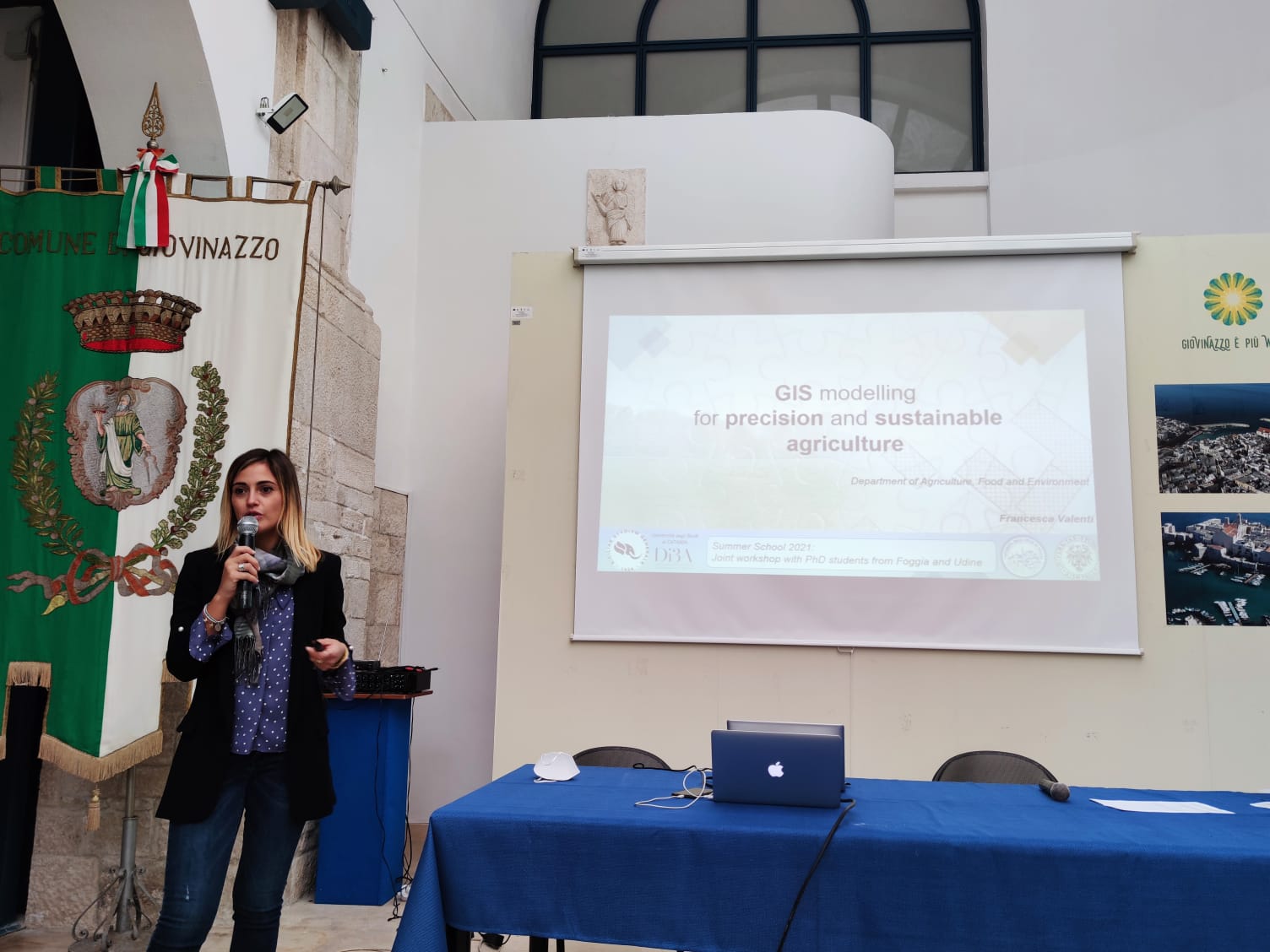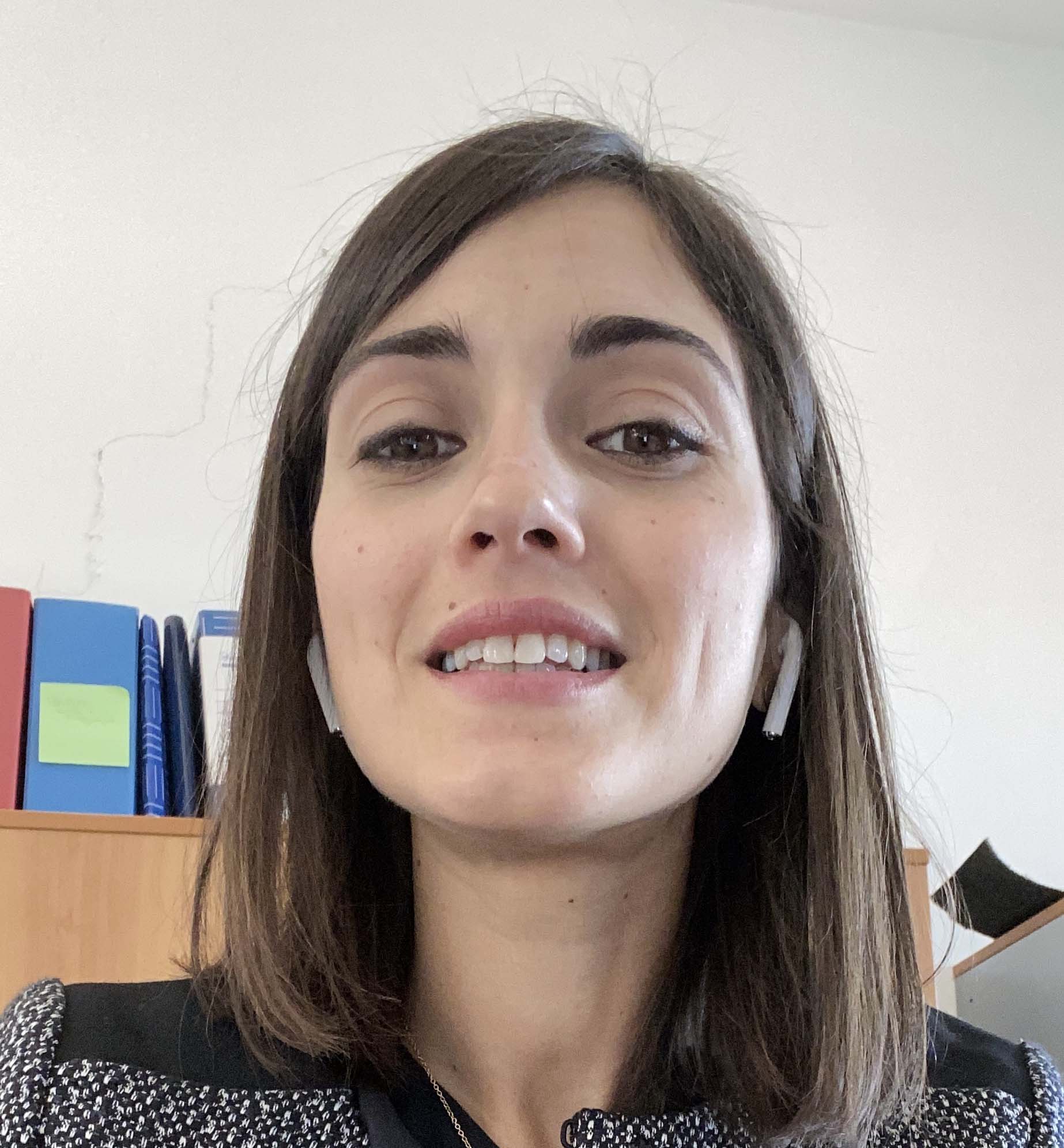Francesca Valenti brings Geographic Information System expertise to Michigan State during her fellowship.
Valenti brings her expertise in GIS to Michigan State while completing her Ph.D.

July 26, 2023
Valenti completed her master's degree in architectural and building engineering and a postgraduate master's in Sustainable use of the environmental and cultural heritage. She began her Ph.D. in agricultural, food, and environmental science in  2014. During her Ph.D. program, she attended a Biogas Done Right conference, where she met Michigan State University (MSU) Chemical Engineering and Materials Science Distinguished Professor Bruce Dale, Ph.D. Dale suggested she contact Biosystems and Agricultural Engineering (BAE) Professor Wei Liao, PhD., to discuss her research interest in biogas in Italy.
2014. During her Ph.D. program, she attended a Biogas Done Right conference, where she met Michigan State University (MSU) Chemical Engineering and Materials Science Distinguished Professor Bruce Dale, Ph.D. Dale suggested she contact Biosystems and Agricultural Engineering (BAE) Professor Wei Liao, PhD., to discuss her research interest in biogas in Italy.
Valenti spoke with Liao, and he became one of the co-PIs on her Ph.D. A short while later, in 2016, Valenti first came to MSU during her Ph.D. program. Valenti's research at MSU focused on the feasibility of implementing anaerobic digestion systems in Eastern Sicily to utilize the agricultural waste products produced in the area. Valenti would transform a waste product into an energy source using anaerobic digestion. Later as a research assistant, she came back to MSU, in 2022, to collaborate on new research related on sustainable solutions for the entire European Union for the water-food-energy-ecosystems nexus. With an increased demand for water, food, and energy, the United Nations has called for groups to create innovative solutions to solve resource challenges. According to the European Commission, the Nexus approach identifies mutually beneficial responses based on understanding the synergies of water, energy, and agricultural policies. This challenge called Valenti, who used the opportunity to expand on the work she completed during her Ph.D. on biogas use in Italy.
As it is worldwide recognized, agriculture, as the primary player in food production, stands as the largest consumer of freshwater. However, water scarcity, intensified by climate change and inefficient water management practices, poses a threat to agricultural productivity and accessibility to safe drinking water for communities around the world. Concurrently, addressing the energy requirements of a growing global population while transitioning towards cleaner and more sustainable energy sources presents a multifaceted challenge. Energy-intensive agricultural practices, such as irrigation and machinery operations, contribute to greenhouse gas emissions, thereby exacerbating climate change (extreme weather events and rising temperatures), impose risks on energy infrastructure and supply chains. Said Valenti.
 Effectively addressing these interconnected challenges requires from biosystems engineering the development and adoption of new, suitable, comprehensive, and integrated approaches. These approaches have to allow the use of sustainable agricultural practices, such as precision farming, agroecology, and efficient irrigation methods, which optimize resource use and minimize environmental impact. In this regard, embracing innovative technologies and fostering international collaboration play vital roles in achieving sustainable and equitable access to food, water, and energy resources for all. Indeed, combining these strategies, it can be possible, by means the biosystems Engineering, to pave the way toward a more sustainable future that addresses the intricate nexus of food, water, and energy while ensuring social and environmental well-being.
Effectively addressing these interconnected challenges requires from biosystems engineering the development and adoption of new, suitable, comprehensive, and integrated approaches. These approaches have to allow the use of sustainable agricultural practices, such as precision farming, agroecology, and efficient irrigation methods, which optimize resource use and minimize environmental impact. In this regard, embracing innovative technologies and fostering international collaboration play vital roles in achieving sustainable and equitable access to food, water, and energy resources for all. Indeed, combining these strategies, it can be possible, by means the biosystems Engineering, to pave the way toward a more sustainable future that addresses the intricate nexus of food, water, and energy while ensuring social and environmental well-being.
Valenti's experience with Geographic Information Systems (GIS) has provided her with a skill set that has been an asset in her academic career. Valenti was asked to work on multiple projects that utilize GIS information. One such project is a bioresearch project with USDA. This project focuses on small to medium-sized farms creating energy using biogas from small anaerobic digestors to build an electric charging network. Electric vehicles are gaining popularity, and Valenti's project is anticipating the need and developing the network in rural areas. Creating the network in advance will encourage individuals to purchase an electric vehicle because it will be convenient to own and charge.
By engaging with individuals in the industry, Valenti has been able to grow as a professional and share her area of expertise with current students. Valenti will continue working on projects and bring together experts from across the globe to improve the quality of life.



 Print
Print Email
Email


